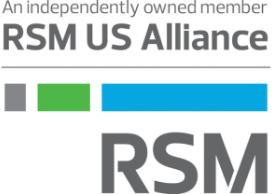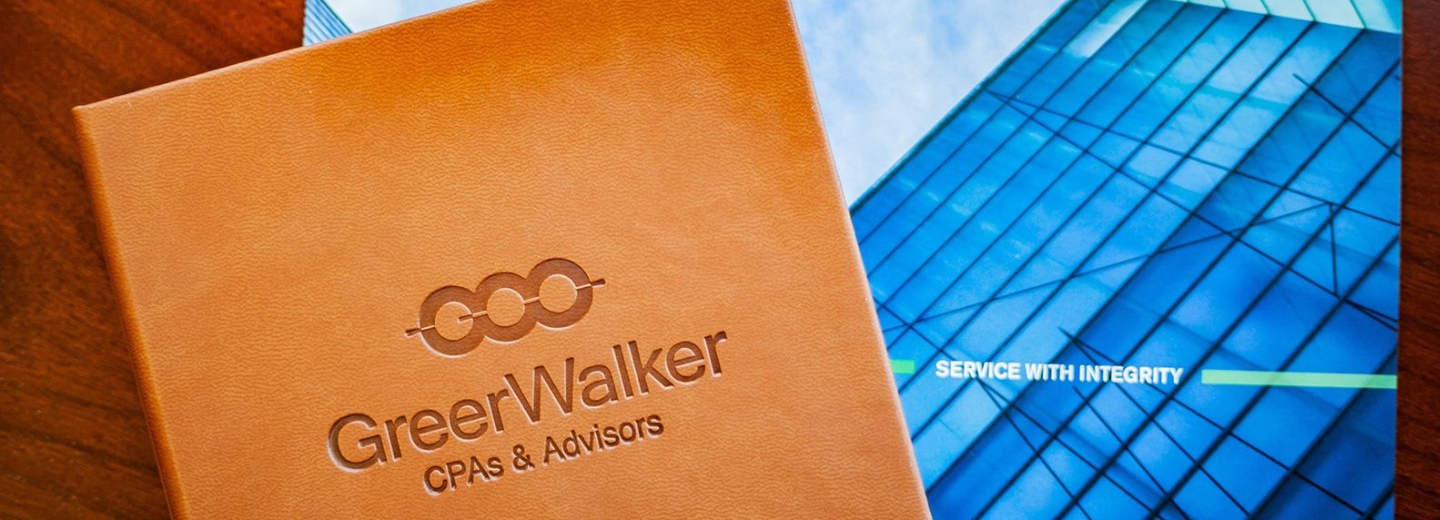
GreerWalker is a proud member of RSM US Alliance, a premier affiliation of independent accounting and consulting firms in the United States. RSM US Alliance provides our firm with access to resources of RSM US LLP, the leading provider of audit, tax and consulting services focused on the middle market. RSM US LLP is a licensed CPA firm and the U.S. member of RSM International, a global network of independent audit, tax and consulting firms with more than 43,000 people in over 120 countries. Our membership in RSM US Alliance has elevated our capabilities in the marketplace, helping to differentiate our firm from the competition while allowing us to maintain our independence and entrepreneurial culture. We have access to a valuable peer network of like-sized firms as well as a broad range of tools, expertise, and technical resources. For more information on how GreerWalker can assist you, please call (704) 377-0239.
This article was orginally published on January 24, 2013
Real estate and business personal property taxes, together, are one of the largest generators of state and local tax revenue. Because they are not tied to a company’s profitability, these taxes are unavoidable. However, they are not uncontrollable. Here are nine often-missed opportunities to control your real and personal property tax liabilities.
- Land classification – Conservation easements, excessive waterfront property, swamp land, agricultural land, and other land classifications hold lower market values than standard market transactions. Classification of land rights can be valued at a fee simple interest, all rights, or a level with one or more rights removed. Land over and above an area standard should be valued at a lower level per square foot.
- Market value – Market value is an opinion of value at a specific point in time. Properties increase and decrease in value depending on market conditions. Each market and type of property changes at different rates. Apartments, office, manufacturing, retail and residential properties within a market may be stable, increasing, or decreasing independent of each other. To obtain a copy of your assessment, review the assessor’s website or visit the assessor’s office. Most mid-sized and larger jurisdictions have a wealth of information available online, including comparable sales and other relevant information.
- Areas of impairment – There are three general areas of value depreciation or obsolescence: 1) physical; 2) function’ and 3) economic. Physical obsolescence covers the actual wear and tear on the facility. If the typical life for a specific structure is 50 years and it is five years old, it is physically 10 percent impaired, or 90 percent good. Functional obsolescence is inherent to the property–extra walls from expansion, remodels or upgrades to electrical or HVAC, or anything quantifiable that would not be included if a new state-of-the-art facility were to be constructed. Economic obsolescence is impairment outside of the property–production reductions from market loss, bankruptcy of supply chain vendors, tenant vacancy, natural disasters, and the decay of surrounding properties are quantifiable events impairing value of the subject property.
- Exemptions – States often provide companies with exemptions for real and personal property in order to assist them in operating within a state. Some states exempt assets physically used in manufacturing, others exempt assets used to protect the environment through a pollution control exemption, and several states that tax inventory provide a Freeport exemption for goods to be shipped out of state within a specified amount of time. Rules vary by state.
- Property descriptions – The assessor’s property record card is only as accurate as the information they were able to obtain. Mistakes in square footage, incorrect property classifications, or errors in the property’s foundation, floor, age, electrical circuitry, or interior finish can make a significant impact on value.
- Technology depreciation rates – Computers and peripheral equipment are often taxed as business personal property using an accelerated life compared to furniture or equipment. Often, the pace of technology outpaces the issuance of guidance used for valuing these pieces of equipment.
- Ghost assets – Personal property is filed based upon fixed asset records. Often, assets that have been disposed, depreciated, idled, or removed from service remain on the record long after their departures. These assets continue to be taxed at a floor of 10 to 15 percent of original cost until removed from the records.
- Leased equipment – Who is responsible for the rendering of a leased asset? Each state is different. Some require the lessor to file, others require the lessee to file, and some states, like Wisconsin, require both to file and reconcile.
- Vehicles – Vehicles, aircraft, watercraft, and other property may be classified as business personal property and subject to property tax. Consideration should be given to where the vehicle is typically located. Tagged vehicles may be exempt, or the state may not tax vehicles registered in states other than where the property is typically housed.
Only two people care about your property tax burden?you and the tax collector. Only one person has to pay for over-assessments, misclassified assets, and missed exemptions. Businesses should take the time to understand how property taxes are being assessed and where they have control in the process.
Let’s Talk!
Call us at (704) 377-0239 or fill out the form below and we’ll contact you to discuss your specific situation.
This article was written by RSM US LLP and originally appeared on 2021-10-19.
2022 RSM US LLP. All rights reserved.
https://rsmus.com/insights/services/business-tax/nine-reasons-your-property-tax-assessment-may-not-be-correct.html
The information contained herein is general in nature and based on authorities that are subject to change. RSM US LLP guarantees neither the accuracy nor completeness of any information and is not responsible for any errors or omissions, or for results obtained by others as a result of reliance upon such information. RSM US LLP assumes no obligation to inform the reader of any changes in tax laws or other factors that could affect information contained herein. This publication does not, and is not intended to, provide legal, tax or accounting advice, and readers should consult their tax advisors concerning the application of tax laws to their particular situations. This analysis is not tax advice and is not intended or written to be used, and cannot be used, for purposes of avoiding tax penalties that may be imposed on any taxpayer.
RSM US Alliance provides its members with access to resources of RSM US LLP. RSM US Alliance member firms are separate and independent businesses and legal entities that are responsible for their own acts and omissions, and each are separate and independent from RSM US LLP. RSM US LLP is the U.S. member firm of RSM International, a global network of independent audit, tax, and consulting firms. Members of RSM US Alliance have access to RSM International resources through RSM US LLP but are not member firms of RSM International. Visit rsmus.com/aboutus for more information regarding RSM US LLP and RSM International. The RSM(tm) brandmark is used under license by RSM US LLP. RSM US Alliance products and services are proprietary to RSM US LLP.

GreerWalker is a proud member of RSM US Alliance, a premier affiliation of independent accounting and consulting firms in the United States. RSM US Alliance provides our firm with access to resources of RSM US LLP, the leading provider of audit, tax and consulting services focused on the middle market. RSM US LLP is a licensed CPA firm and the U.S. member of RSM International, a global network of independent audit, tax and consulting firms with more than 43,000 people in over 120 countries. Our membership in RSM US Alliance has elevated our capabilities in the marketplace, helping to differentiate our firm from the competition while allowing us to maintain our independence and entrepreneurial culture. We have access to a valuable peer network of like-sized firms as well as a broad range of tools, expertise, and technical resources. For more information on how GreerWalker can assist you, please call (704) 377-0239.









